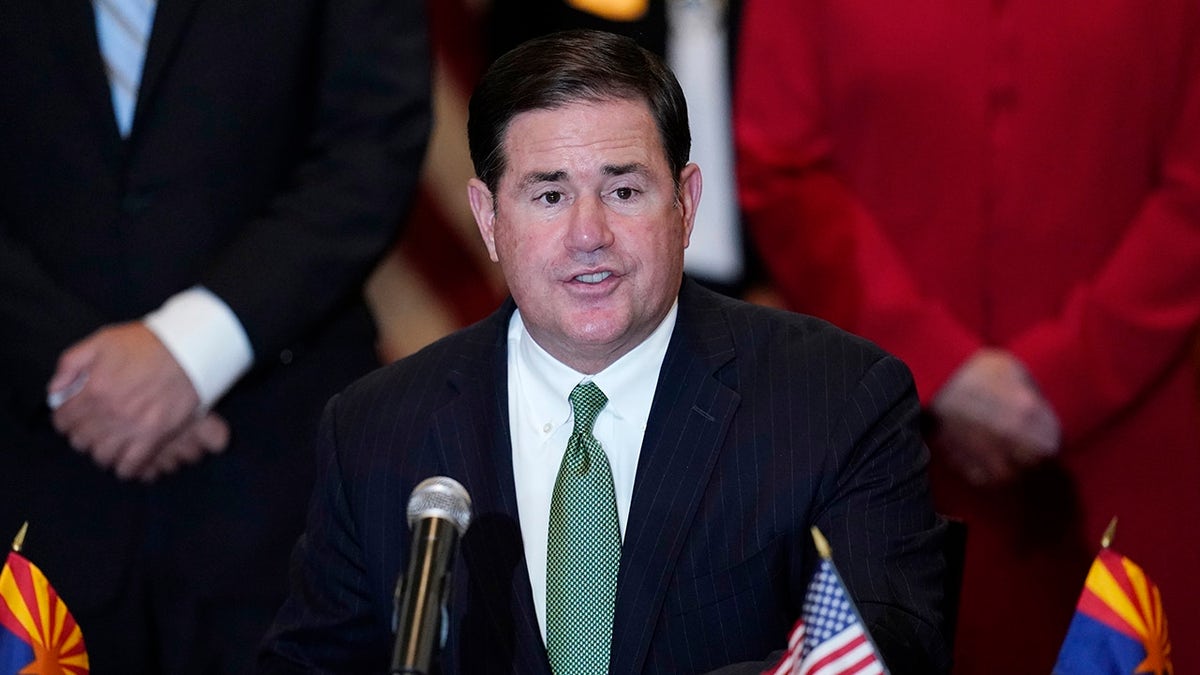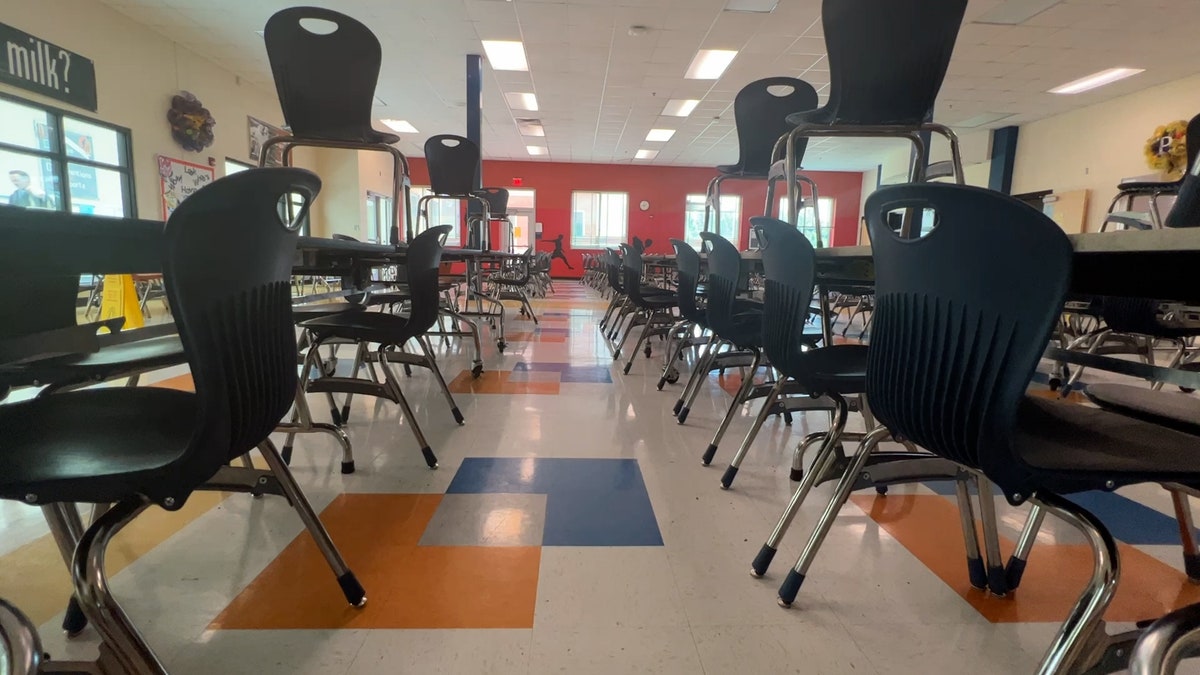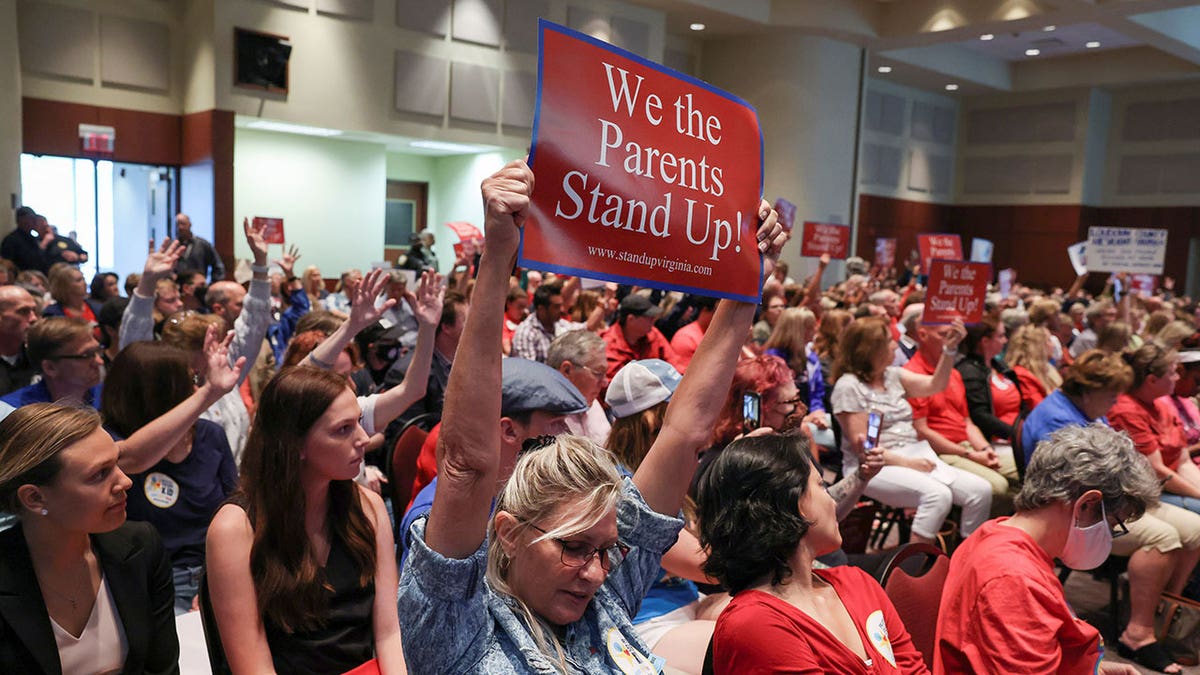'Signal mark' of GOP popularity in education is Glenn Youngkin: Former Education Sec. Bill Bennett
Fox News contributor and former education secretary analyzes how well the GOP is grasping education policy issues ahead of midterm elections in November on 'The Story.'
Arizona Gov. Doug Ducey, R., called on Arizona Secretary of State Katie Hobbs to unfreeze a school choice program that would benefit over 1.1 million K-12 students in the state.
"The time has come for us to put this into law," Ducey said at a rally in front of Hobbs' office.
"The date has passed. I am calling for Katie Hobbs to expedite the signature verification project," Ducey said, which led to applause and cheers from a surrounding crowd of protestors.
Ducey urged Hobbs to unfreeze an education savings account program that he recently made universally eligible to all K-12 Arizona students.
ARIZONA GOVERNOR SIGNED THE MOST EXPANSIVE SCHOOL CHOICE LEGISLATION IN THE NATION INTO LAW
After more than 10,000 students applied to the program, it was obstructed by Arizona’s veto referendum.
In Arizona, a law can be stopped by the Secretary of State if an opponent of the law collects enough signatures within 90 days of its enactment. The signature requirement is 118,823, or 5% of turnout in the most recent gubernatorial election.

Arizona Republican Gov. Doug Ducey speaks during a bill signing in Phoenix. (AP Photo/Ross D. Franklin) (AP Photo/Ross D. Franklin, File)
Once it is stopped, it will be put on the next general election ballot, which in the case of the school choice program is November 2024.
Save Our Schools Arizona, which vocally opposed school choice measures, pushed the petition and had claimed to have reached the required amount of signatures to stop Ducey’s school choice program.
Hobbs started verifying the petition and froze the program.
Although Save Our Schools claimed to have submitted 10,200 sheets of signatures, the Goldwater Institute countered their claim after they and the Center for Arizona Policy Action actually counted the ballots, saying that Save Our Schools Arizona only submitted 88,866 signatures.
"The tremendous shortfall in signatures is apparent based on the petition sheets made available by the Secretary of State’s office, which is due to make a final determination on the effort," Goldwater Institute said in a news release.
Save Our Schools Executive Director Beth Lewis told another outlet on Monday that she thinks they will "end up short."
However, Save Our Schools released a statement on that same day saying that the Goldwater Institute and the Center for Arizona Policy Action released its own "questionable" estimate of numbers regarding the petition campaign to stop the universal voucher expansion.

School districts are offering incentives and pay raises to get more teachers into the classroom before August. (FNC)
"To be clear, there are no official numbers until the Secretary of State says there are, and the Secretary’s office is still in the early stages of carrying out its statutory obligation to review petition sheets," the group said.
Arizona House Majority Leader Ben Toma and Arizona Senate President Karen Fann also called on Hobbs to expedite the signature verification process of the anti-school choice petition.
As of now, it’s up to Hobbs to unfreeze the program and the Arizona Democratic nominee for governor has 20 business days to do so. Hobbs had previously promised her education platform is "to oppose the universal expansion of school vouchers."
Gov. Ducey on July 7 signed the most "monumental" education savings account program in the United States.
"This is a monumental moment for all of Arizona’s students. Our kids will no longer be locked in under-performing schools. Today, we’re unlocking a whole new world of opportunity for them and their parents," Ducey said. "With this legislation, Arizona cements itself as the top state for school choice and as the first state in the nation to offer all families the option to choose the school setting that works best for them … This is truly a win for all K-12 students."
REPORT CARD ON BIG LABOR UNIONS SHOW SIGNIFICANT LOSS OF TEACHER UNION MEMBERSHIP SINCE 2018
The Arizona State House and Senate passed Bill 2853 for the expansion of education savings accounts to have universal eligibility. Arizona, the first state in the nation to pass education scholarship accounts, expanded the program to all 1.1 million K-12 students in the state.
The program ensures all Arizona children will now be eligible for scholarship funds to access the education that best fits their unique needs. The program provides parents with scholarships to cover educational expenses such as private school tuition, online education, education therapies, tutoring, etc.

Parents protesting in Loudoun County, Virginia, on June 22, 2021. (Reuters)
Private school choice, or providing all families with alternatives to the public schools they’re zoned for, can be expanded through multiple avenues at the state level, including school voucher programs, tax-credit scholarship programs, individual tuition tax credit programs and deductions, and education savings accounts. Charter schools, magnet schools and homeschooling are also forms of school choice programs.
School choice became a salient issue after the COVID-19-induced lockdowns sparked a conversation on the scope of the government’s authority and the type of content that should be taught to children from public school curricula.
Many private schools stayed open while public school systems across the country closed in-person learning for entire semesters, even years, and remote learning lifted the veil on what public school kids are actually learning – and not learning.
CLICK HERE FOR THE FOX NEWS APP
Private schools across the country reported an uptick in enrollment over the past two years, while public school enrollment declined on a national scale. Between fall 2019 and fall 2020, total public school enrollment dropped 3% nationwide, erasing a decade of steady growth, according to the U.S. Department of Education.
Meanwhile, total enrollment in independent private schools saw a net growth of 1.7% between 2020 and 2022, NPR reported in December.
Fox News' Jessica Chasmar contributed to this report.






















